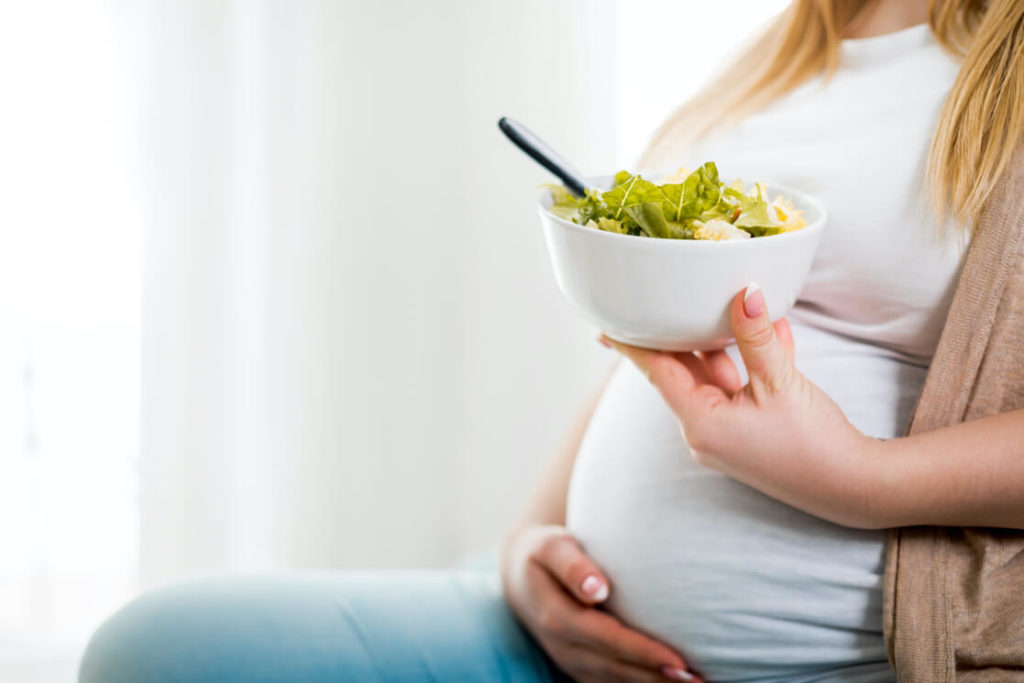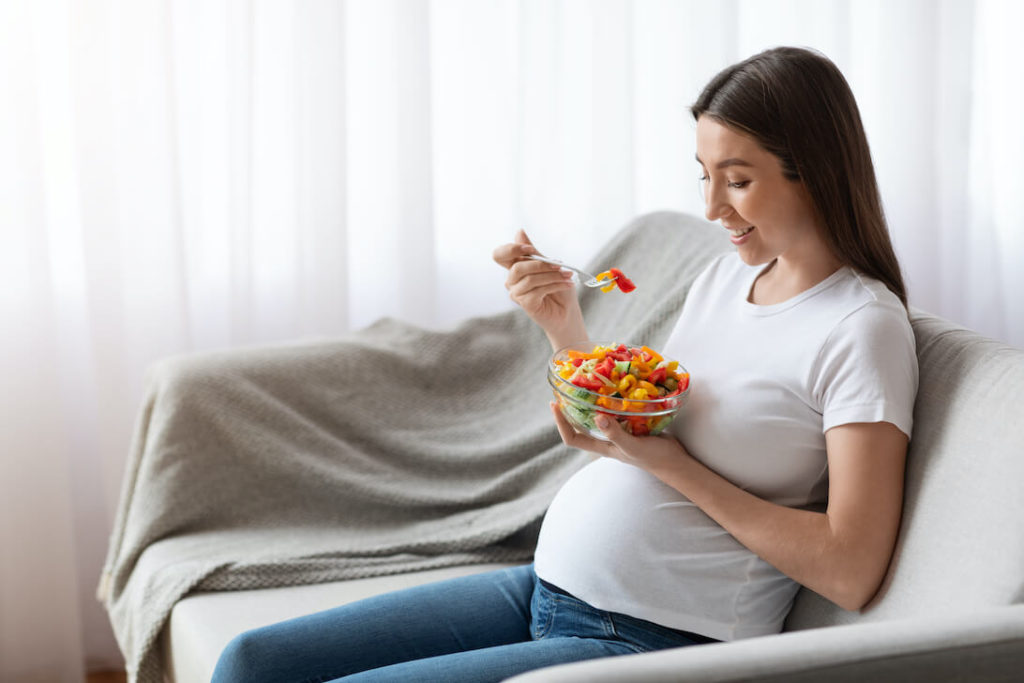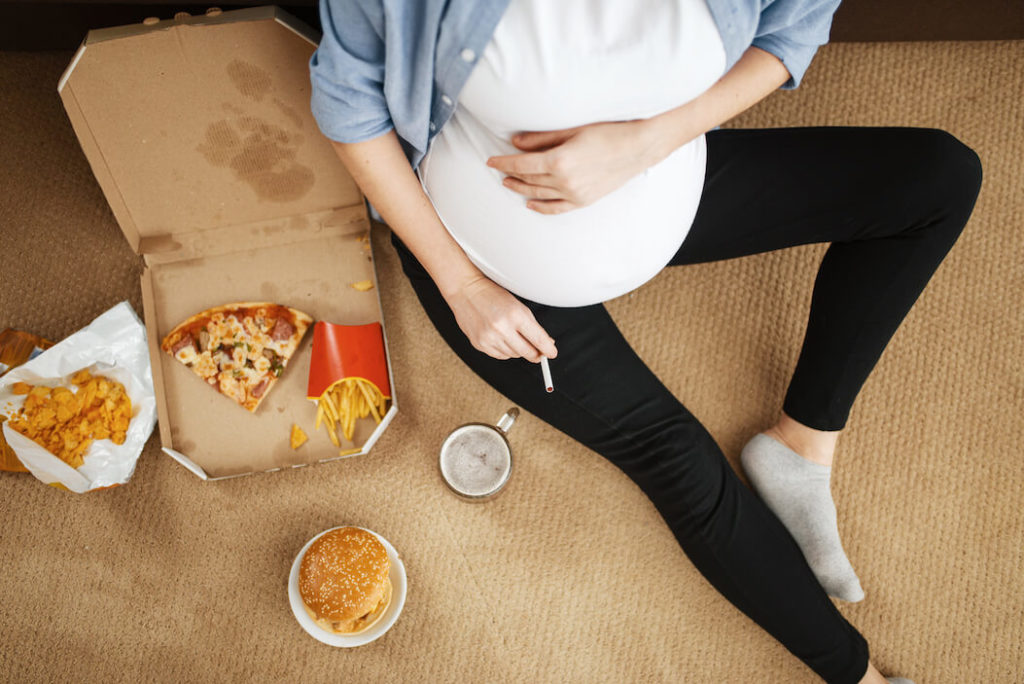When it comes to pregnancy, you’re bound to feel hungry all the time – but while it’s okay to eat more during pregnancy, you should also make sure that you’re eating the right foods. In this article we’ll be discussing some of the best and most healthy foods for pregnant women and what they can do for mom and baby.
Pregnancy can be a time of increased appreciation for food. But, there are also certain foods and habits that should be avoided by pregnant women.

Learn which foods to eat and which to caution or avoid to help you prepare for your growing lovely baby!
Why Pregnant Women Feels Hungry More Often?
Pregnant women’s hormones can cause them to feel hungry more often than other people for a number of reasons:
- Increased metabolic rate and this typically causes many people to feel hungrier
- Experiencing food aversions, which can cause you to eat more often
- The need to offer nutrients for the growth of the unborn baby
Foods to Eat During Pregnancy
For the most part, foods for pregnant women needs to be healthy and balanced during pregnancy. It is not always advisable to eliminate certain foods from the diet, but it is important to make sure you are eating enough of the good stuff and in the right proportions.

What Foods Pregnant Women need to Eat?
Pregnant women are often hungry, but do not always need to eat for two. Eating too much can lead to weight gain and constipation. Pregnant women should try to eat three healthy meals each day.
Pregnant women need more calories than before (about 300-350 calories), and it is recommended to eat healthy, which means eating a balanced diet as follows every day:
- Five servings of vegetables and fruits
- Six servings of grains
- At least two servings of dairy products
- Lean meats as a protein source
Fruits and vegetables are important because they offer vitamins and minerals, in addition to fiber. Pregnancy diet should include consuming foods that are high in iron, calcium, folate and protein.
Foods for pregnant women that are high in protein are also recommended because they help with the growth of the fetus, especially during the final weeks of pregnancy.
Supplements for Pregnant Women
A woman’s diet during pregnancy is very important. Pregnant women need a variety of things in their diet to ensure they’re getting adequate nutrients and vitamins. There are a few great supplements available on the market, including DHA supplements for pregnant women.

You can buy these at most drug stores or online, however, ensure consulting your doctor before doing so. There are many supplements that can be taken to help you have a healthy pregnancy, such as:
1. Vitamins D and C
These are two very important ones. Vitamin D helps prevent problems with fetal development, such as bone defects. Vitamin C is important because it helps the body absorb iron from food
2. Folic Acid
One of the most important supplements for pregnant women is Folic Acid. It prevents birth defects of the nervous system, such as spina bifida. The Centers for Disease Control and Prevention recommends that all women of childbearing age get 400 micrograms (mcg) of folic acid
3. Omega 3s, Iron & Calcium
It’s important for pregnant women to take Omega-3s, Iron and Calcium. This is because the first trimester of pregnancy is when your baby’s neural tube is developing. The first trimester of pregnancy is also when you are most susceptible to experiencing morning sickness and fatigue
4. Vitamin B
This vitamin is an essential vitamin for pregnant women. It helps control blood sugar levels, prevents birth defects like spina bifida, and it increases energy by converting carbohydrate into glucose.
Foods to Avoid During Pregnancy
There are certain foods for pregnant women that should be avoided for a healthy and safe pregnancy. These include:
- Alcohol
- Raw or under-cooked meats
- Raw or under-cooked seafood such as Sushi
- Seafood high in mercury
- Unpasteurized dairy products
- Deli meats (i.e Turkey, Ham, Roast Beef, Salami, Pepperoni..)
- Caffeine
- Soft Cheeses
- Processed foods such as hot dogs and sandwiches alike

One thing that we found interesting is that smoked meats are not considered unsafe, but other processed meats are off the table (like hot dogs and sandwiches containing these items) because there is not enough research on their effects on pregnant women.
It is also important to stay away from foods that have been recalled by the FDA.
Foods to Avoid During Breastfeeding
Similar to the foods for pregnant women need to avoid, you need to watch what you are eating during breastfeeding to ensure taking care of the health and safety of your baby!
Some foods to avoid when breastfeeding are as follows:
- Alcohol is very harmful to the baby’s growth and development
- Alcohol can cause the mother to feel tired, which is not good for breastfeeding
- Unpasteurized soft cheeses
- Unpasteurized fruit juices and bacteria-rich vegetables like sprouts
- Undercooked red meat (including beef and lamb)
- Smoked fish
- Raw eggs
- Caffeinated beverages
- Unprocessed saturated fats
Breastfeeding and Antibiotics
Antibiotics are defined as “any of a group of antimicrobial substances that kill or inhibit the growth of microorganisms.” Antibiotics are prescribed to treat bacterial infections and to decrease the chance of bacteria spreading.
There is, though, one complication when it comes to antibiotics and breastfeeding: how do you take the antibiotic without harming your baby?
You can take an antibiotic while breastfeeding as long as you make sure to do it for the shortest time possible. Talk to your doctor about which antibiotic and how long you should take your antibiotic and let them know that you are breastfeeding. If needed, time the dose with when you will not be nursing.
If you do need to take an antibiotic while breastfeeding, be sure to pump and dump so your baby gets some milk without any of the drug in it.
Smoking and Pregnancy
Smoking during pregnancy can cause low birthweight and decrease baby’s chance of survival. It can also cause the mother to have a decrease blood flow and disrupt the supply of oxygen to the placenta, which could lead to a miscarriage.
There are many negative effects of smoking cigarettes when pregnant.
Smoking during pregnancy has been linked to premature birth, low birth weight, and certain birth defects.
The nicotine in cigarettes can also interfere with the placenta’s ability to function properly. Smoking also affects a woman’s fertility by causing ovulation to be irregular or stopping it altogether.

Passive smoking is also associated with increased risk of miscarriage, stillbirth, and preterm birth. Furthermore, it can have a negative impact on fetal growth and development.
Despite the known association between passive smoking and poor pregnancy outcomes, a significant proportion of pregnant women are still exposed to secondhand smoke at home and in public places.
It is not safe for moms who are pregnant to smoke or to be a passive smoker. This has been known for some time now, but unfortunately it doesn’t stop many women from avoiding this during their pregnancy!
Final Thoughts
We hope this article helps you find the best foods for pregnant women. Overall, there are some really great foods that pregnant women can eat to ensure they get the vitamins and minerals they need.
Some of the top foods to include in your diet are leafy greens, whole grains, fruit, legumes, nuts and seeds.
The health of pregnant women and their babies is at stake. It’s important not to deprive the body of nutrients, so eating a balanced diet is essential.
A nutritious diet can help to prevent complications during pregnancy and childbirth. Sure, there are foods that are not recommended for pregnant women, but that doesn’t mean you should feel guilty about eating them as long as not harmful. If it’s your favorite, go ahead and speak with your doctor first then enjoy!
There are many supplements for pregnant women, like Omega 3s, Folic Acid and Vitamin B. It is very important that you take the right supplements during pregnancy to help your baby grow healthy and strong.
Active and passive smoking have a very dangerous effect on the health of both the mother and baby, which must be avoided by all means.
If you enjoyed reading this story, you may want to check out Constipation Pregnancy Symptoms and For Breastfed Babies.
References: